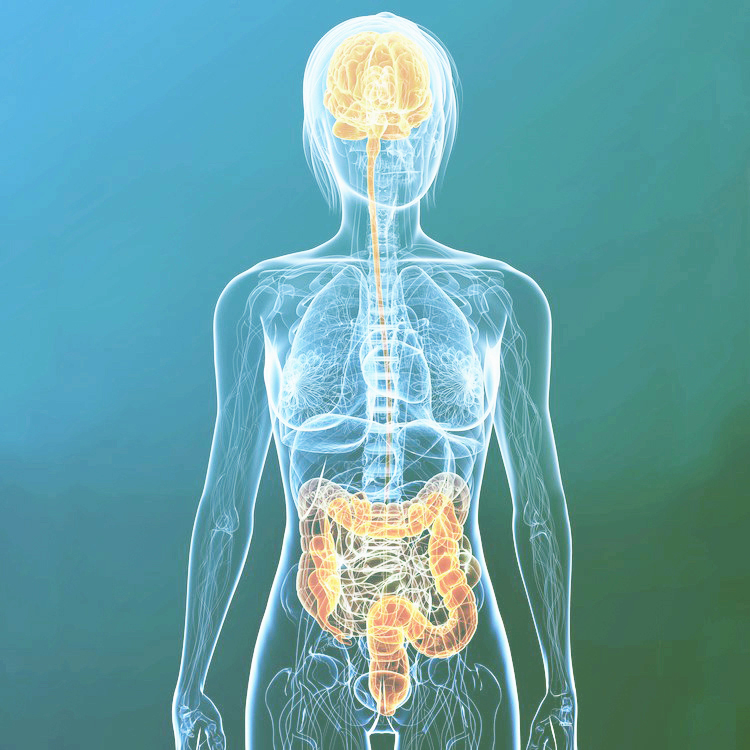Gut-Brain Connection
Therapeutics Derived from the Microbiome
Diagnostic Biomarkers
About RaphaLX™
"We believe RaphaLX™ shows great promise to be a game-changing, disease-modifying biotherapeutic for ALS". Dr Karen Garnaas, Neurologist and ALS Specialist, Chief of Staff, Avera Mc Kennan Hospital, Sioux Falls, SD
RaphaLX™ is the company's flagship product that has been granted Orphan Drug Designation (ODD) by the FDA to treat ALS (amyotropic lateral sclerosis). It is a breakthrough formulation derived from human gut bacteria (microbiome), which in human studies has been observed to slow down the progression of the disease and in certain cases reverse the condition,
Scientists are not sure what causes ALS, but glutamate toxicity within the brain's motor neurons is thought to play an important role in this condition. Glutamate is an amino acid that acts as the primary neurotransmitter within the brain, allowing motor neurons to communicate with one another. This in turn controls motor movements in our body. Our brain has several mechanisms in place to control the amount of glutamate surrounding the nerve cells.
One of the more popular proposed causes of ALS is excitoxicity, which involves the problems with astrocytes, which are a type of supporting cells to the neurons. Astrocytes have glutamate transporters, which are proteins embedded in their cell membrane, that remove excess glutamate from the spaces between the neurons. After neurons transmit the message they release glutamate which is removed by astrocytes' glutamate transporters. Researchers at Johns Hopkins University in Baltimore suggest that people with ALS have a depletion of astrocytes or their transporters. This may cause glutamate level to build up excessively, which can lead to a cascade of events called oxidative stress. Over time, the chronic high concentration of glutamate clogs the synaptic space between the nerve endings, causes them to stop working and chokes them to death. The gradual death of these motor neurons which controls movements, leads to the progression of symptoms seen in ALS, eventually leading to death. One of the currently FDA approved drugs on the market, Rilutek™, attempts to slow the body's release of glutamate into the synaptic cleft. It only slows the inevitable by 2-3 months.
Glutamate Neurotransmitter Metabolism. Source: Molecular Metabolism (2012)
Gut-Brain Interactions and the role of the microbiome in brain health
RaphaLX™ is a biotherapeutic that takes a totally new approach in treating amyotrophic lateral sclerosis (ALS). There have been studies showing that gut microbes may have a role maintaining the integrity of the blood-brain barrier (BBB). A leaky BBB could lead to glutamate toxicity which could then lead to the development of neurological conditions such as ALS. From our extensive research on the gut-brain axis and the human microbiome, we have isolated and tested a biotherapeutic formulation derived from human gut bacteria, that could mitigate the effects of reactive oxidative species (ROS) and reduce glutamate excitotoxicity in the brain and spinal cord nerve cells.
We have observed dramatic results and witnessed both clinical and functional improvements in preliminary human case studies. In a number of cases in recent pilot studies, slowdown of the progression of the disease (through improvement of ALSFRS, ALS Functional Rating Score) and prolongment of life were observed. This has made us cautiously optimistic that RaphaLX™ could finally be the game changing, disease-modifying biotherapeutic we have all been waiting for to treat ALS. Notwithstanding, it must be noted that this has been observed through a limited sampling of human case studies. Until RaphaLX™ has successfully completed clinical trials and received approval from the FDA, we make no representation other than offer hope to ALS patients and their loved ones .






